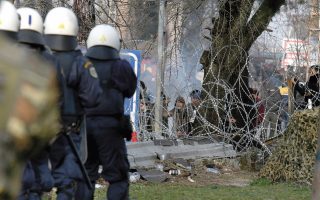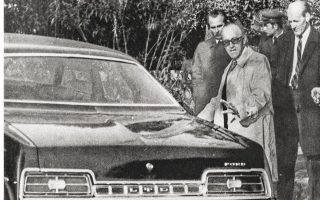A Greek’s escape from Taliban-run Kabul
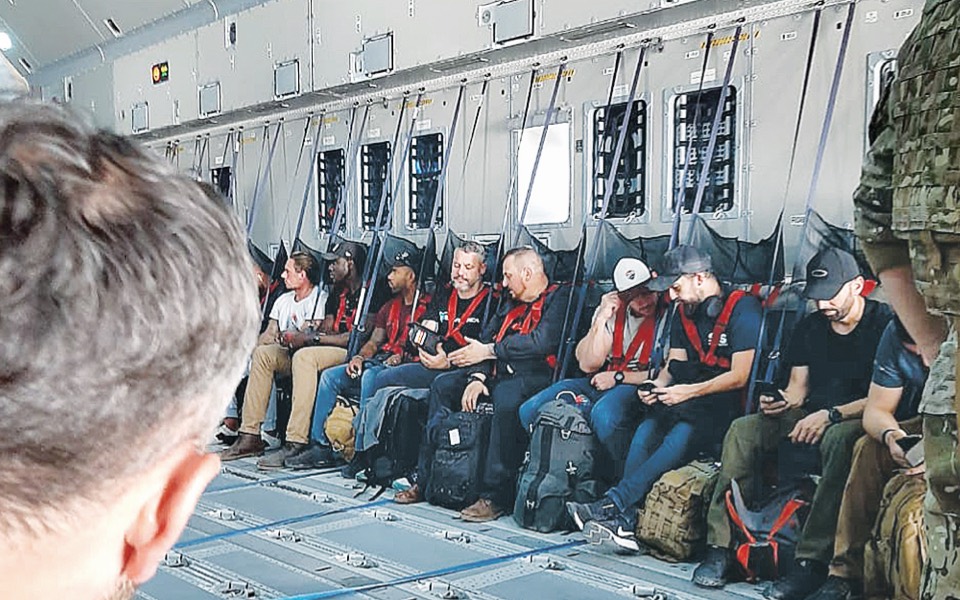
Just a few hours before abandoning the “green zone” and heading for Hamid Karzai International Airport in Kabul – inundated by thousands of Afghans desperately trying to get a flight out – Panagiotis Koumoutsakos and the executives of the multinational security firm he was working with received a visit at their headquarters from the local Taliban chief. It was the second time he had visited since Kabul fell to Taliban control on August 15. In contrast to the first meeting, during which he was accompanied by two fighters in suicide bomber vests, this time around the Taliban representative tried to create a friendly atmosphere, using what little English he had. “Don’t worry,” he said addressing Koumoutsakos and his colleagues, who were looking ill at ease in their full military gear. “We’re all brothers. Later, when this is all over, we’ll come visit. Just like we did on… September 11,” the Taliban official said, with a sly smile.
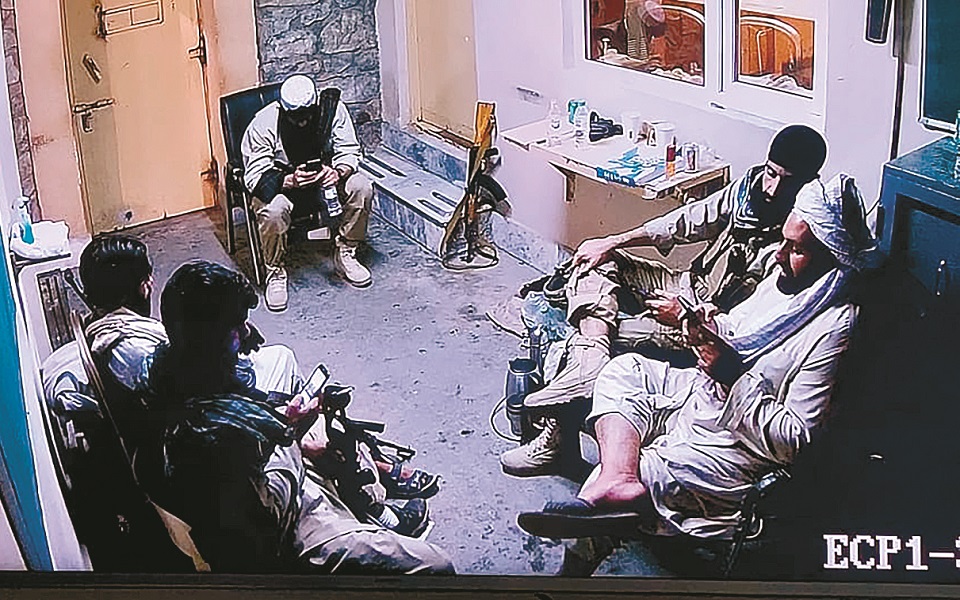
Koumoutsakos, 46, is trained in personal protection and target security. He has worked as an armed guard on ships and spent the last four years in Kabul working for multinational security companies that were active in Kabul under the NATO umbrella. He flew back to Greece in late August during the evacuation of Kabul, speaking to Kathimerini about life in Afghanistan and his escape from the “worst war zone in the world.”
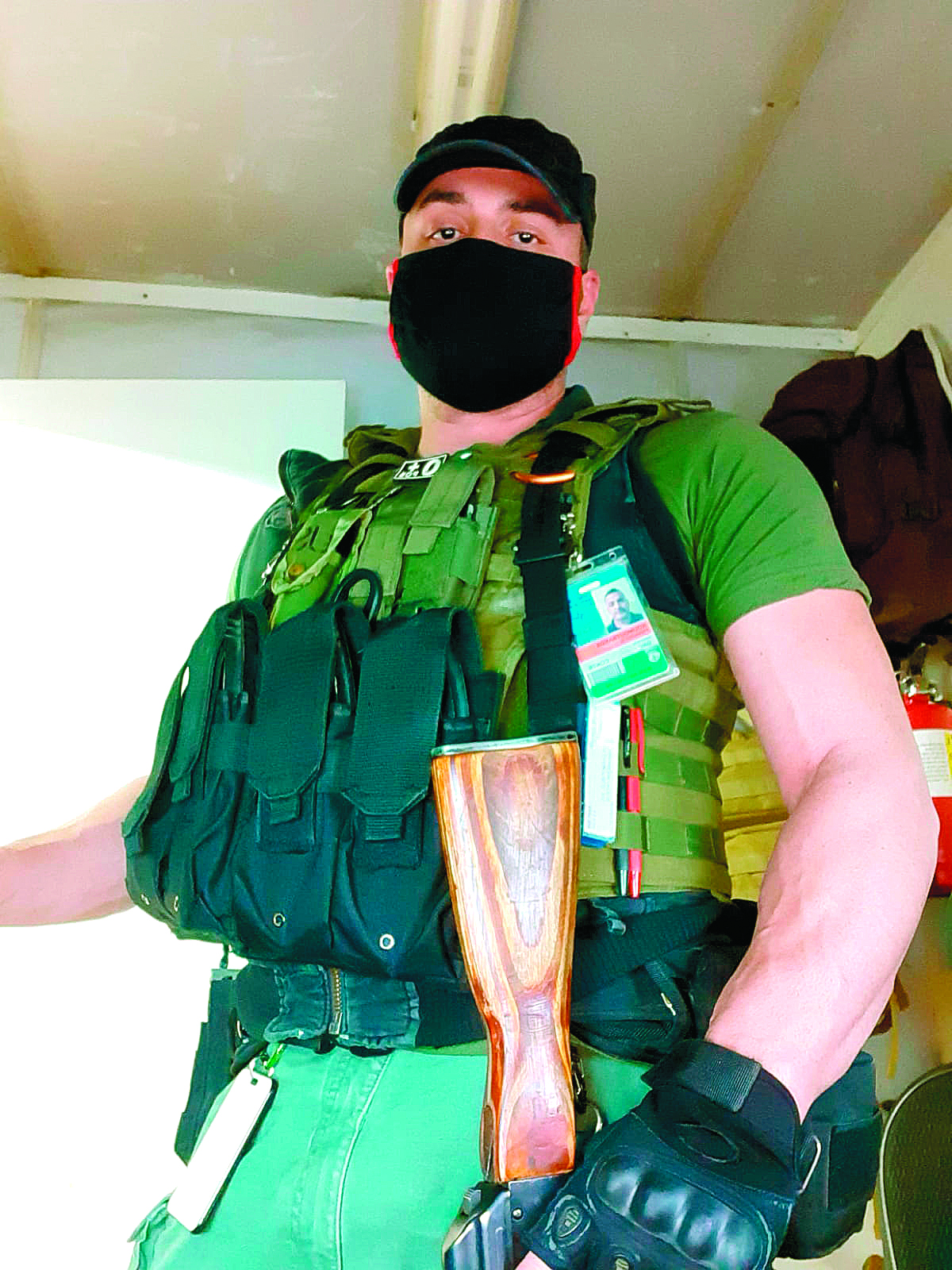 His first job in Afghanistan was as the head of a small group of armed men responsible for internal security at a compound where he lived with dozens more Westerners. “These aren’t hotels, but neither are they military bases. They are compounds that were guarded externally by the Afghan police and inside by private security firms. They have stores selling Western products, restaurants and, of course, apartments for accommodation. Foreign diplomatic missions, executives of multinational firms on business and Western officials responsible, for example, for training their Afghan colleagues stay and live in such compounds,” he explains, describing Afghanistan – before the Taliban takeover – as “big business.”
His first job in Afghanistan was as the head of a small group of armed men responsible for internal security at a compound where he lived with dozens more Westerners. “These aren’t hotels, but neither are they military bases. They are compounds that were guarded externally by the Afghan police and inside by private security firms. They have stores selling Western products, restaurants and, of course, apartments for accommodation. Foreign diplomatic missions, executives of multinational firms on business and Western officials responsible, for example, for training their Afghan colleagues stay and live in such compounds,” he explains, describing Afghanistan – before the Taliban takeover – as “big business.”
Residents leaving the compound to go to the airport, perhaps, or to a business meeting at a hotel in Kabul’s equally well-guarded green zone would be accompanied by armed guards and travel in armored vehicles.
In the last few months leading up to his dramatic escape from Afghanistan, Koumoutsakos was tasked with overseeing various checkpoints on the perimeter of the capital’s green zone. He remembers that by mid-July, “it was obvious the Taliban would try to seize control of Kabul.”
“A number of my colleagues, as well as clients, resigned and left the country. They could see that things were about to get even harder, yet the executives of my firm were not too concerned. We were, after all, with staff from foreign embassies and I was optimistic that even if everything collapsed, we’d be OK,” he adds.
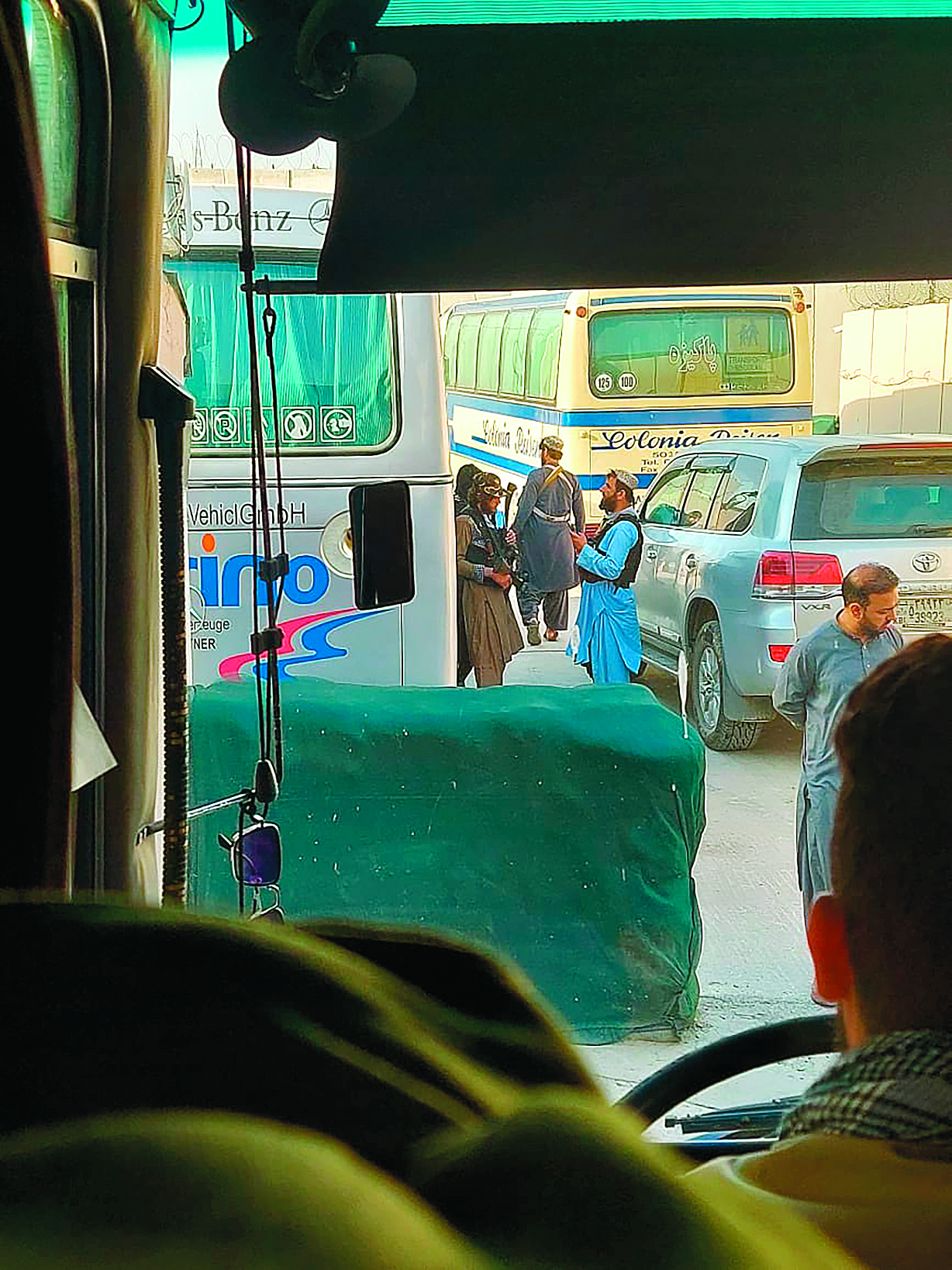 After the Taliban took Kabul in mid-July (“many Afghans applauded as they marched in”), Koumoutsakos and his colleagues awaited orders from the heads of the firm, instructing them about whether and when they would evacuate their base and head for the airport. “It became harder and harder as time went by because the Taliban were taking control of the checkpoints and sending the Afghan police officers away,” he explains. The officers, he remembers, stripped off their uniforms, handed over their weapons and went home.
After the Taliban took Kabul in mid-July (“many Afghans applauded as they marched in”), Koumoutsakos and his colleagues awaited orders from the heads of the firm, instructing them about whether and when they would evacuate their base and head for the airport. “It became harder and harder as time went by because the Taliban were taking control of the checkpoints and sending the Afghan police officers away,” he explains. The officers, he remembers, stripped off their uniforms, handed over their weapons and went home.
A couple of days later, a group of seven or eight Taliban visited the company Koumoutsakos was working for and informed them that they would be back the following morning so that their chief, who spoke a bit of English, could talk directly to the head of the company. In the meantime, 439 workers from three embassies had sought shelter in the building complex where the security company was located.
“Everyone was nervous during the first meeting,” says Koumoutsakos, remembering the suicide vests two of the Taliban fighters were wearing, ready to detonate them if their commander ordered it. They thought we were with Blackwater, which is why they were so cautious,” he says.
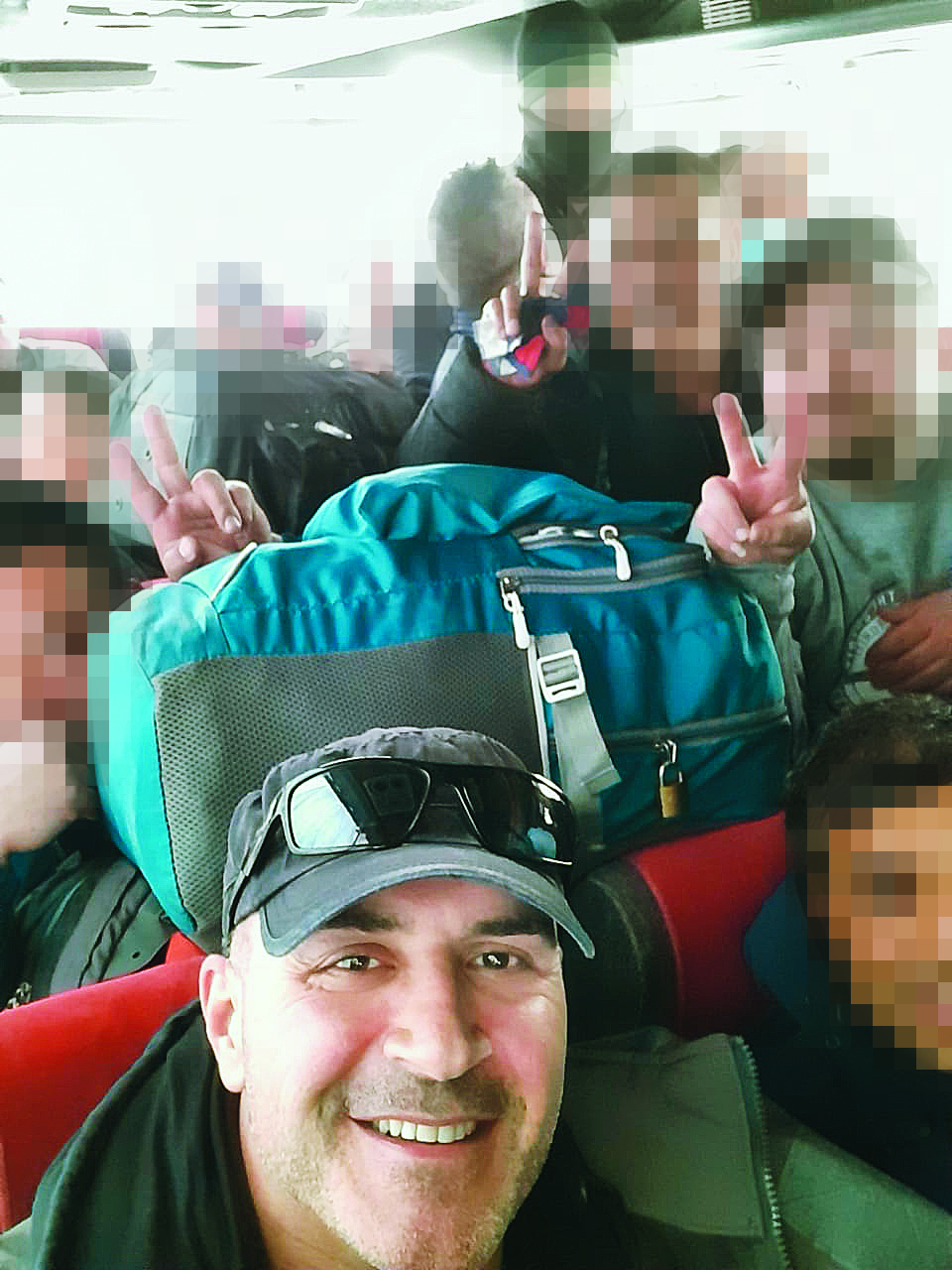 “The conversation went smoothly; it was civilized. They told us that they would be responsible for security at the building complex and for getting us to the airport, at a time of their choosing. We shook hands as they left. We were also to hand over all our weapons upon departure,” says the Greek security guard.
“The conversation went smoothly; it was civilized. They told us that they would be responsible for security at the building complex and for getting us to the airport, at a time of their choosing. We shook hands as they left. We were also to hand over all our weapons upon departure,” says the Greek security guard.
The original plan was to evacuate Koumoutsakos and the other 438 Westerners in the building complex on the morning of August 16, but the presence of some 5,000 desperate and enraged Afghans on the airport’s perimeter prompted the Taliban official to postpone the operation until August 19. “I don’t want to be responsible for one of you getting hurt,” Koumoutsakos remembers the official saying.
In the early hours of August 19, they packed their belongings – or as “many as could fit into a small backpack” – and boarded seven buses to the airport. “We were told to close the curtains so that people on the street would not suspect that we were headed for the airport, and we had our passports taped to our chests. We were ready to engage in hand-to-hand combat to reach the airport if necessary. Finally, when we arrived at 6.30 a.m., the security forces had managed to push the crowd back,” says Koumoutsakos.
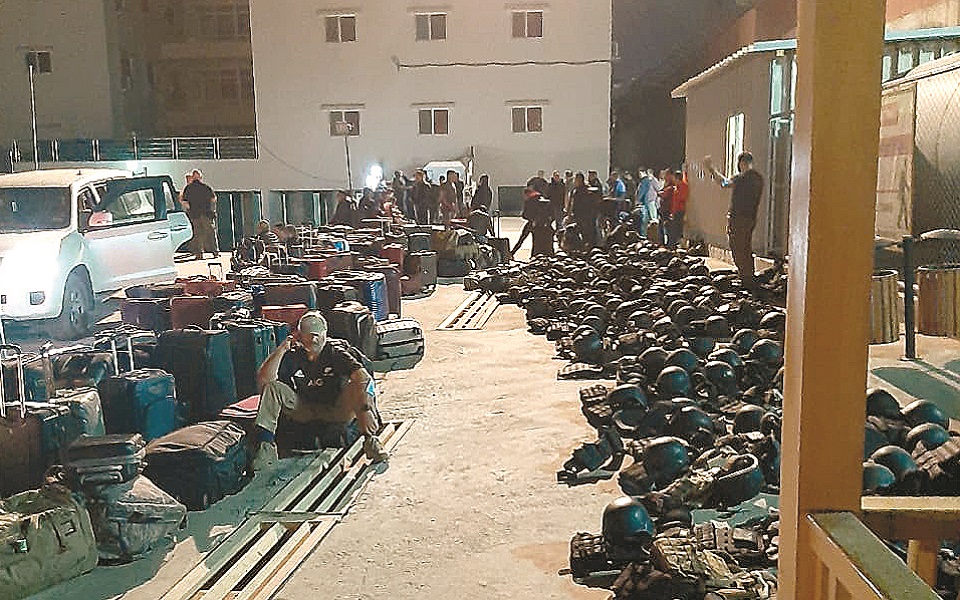
Thanks to his own initiative, with the help of a lawyer who specializes in crisis management, Giorgos Maris, and the mediation of the Greek Ministry of Foreign Affairs, Koumoutsakos boarded a military transport plane to Doha and then traveled to London before catching a flight to Athens. In the days following his return, his telephone kept beeping with messages from Afghan friends and acquaintances left behind in Kabul. “They think I have some kind of influence and are asking for help to get out,” he says.
